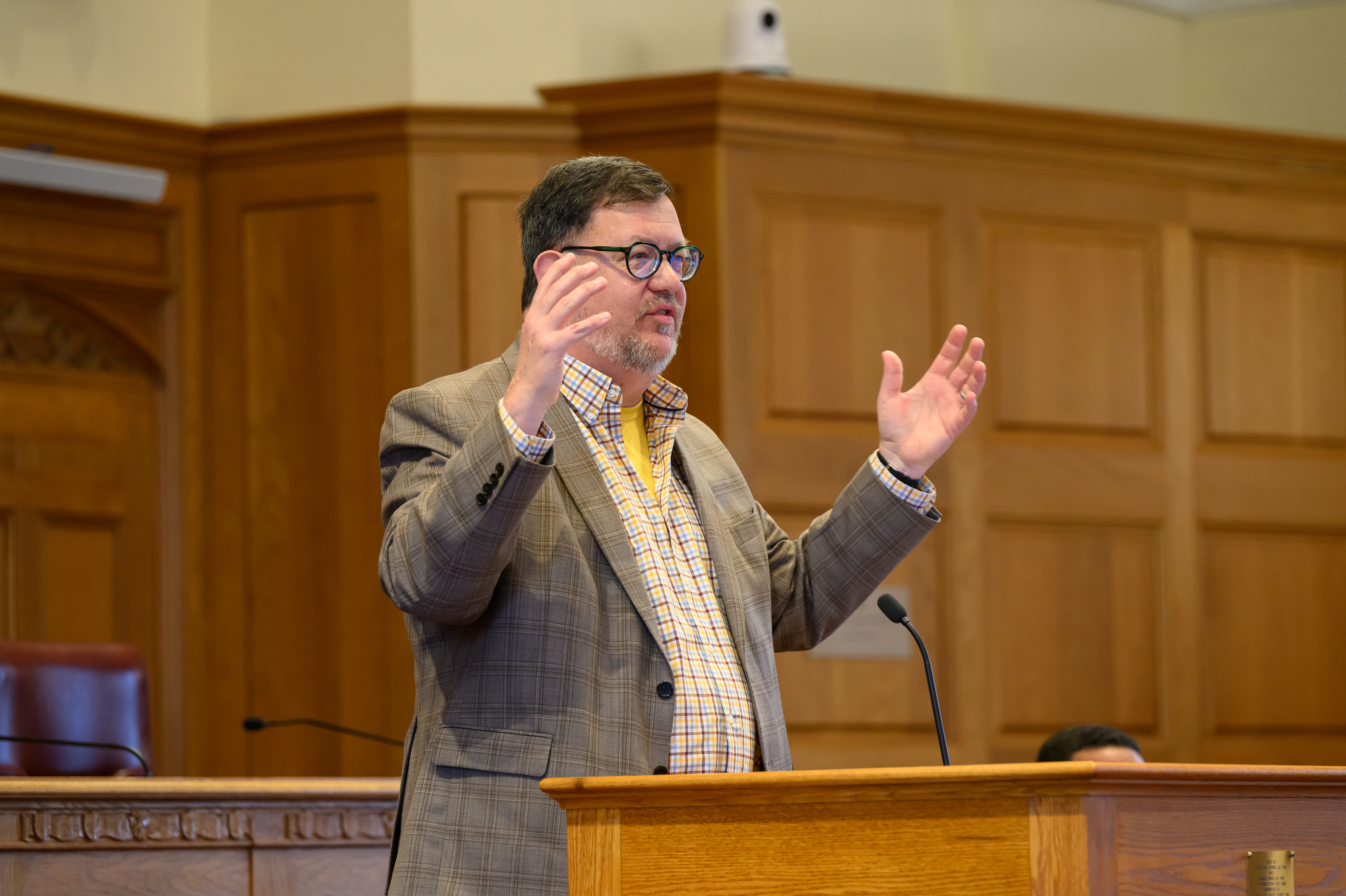This website uses cookies
We use cookies to ensure that we give you the best experience on our website. If you continue to use this site we will assume that you are happy with it.

In his pioneering new book, W. Bradley Wendel, the Edwin H. Woodruff Professor of Law, confronts the ethical quandaries faced by lawyers when representing controversial clients and questions the principle of non-accountability that has long shielded legal professionals from public criticism. On March 18 in the MacDonald Moot Court Room, members of the Cornell Law School community gathered to hear three distinguished scholars of legal ethics discuss Canceling Lawyers: Case Studies of Accountability, Toleration, and Regret.
The event featured Emad Atiq of Cornell Law School, Lonnie T. Brown Jr. of the University of Tennessee College of Law, and Abbe Smith of Georgetown Law School, who discussed the complex ethical dimensions of legal practice highlighted in the book. Moderated by Kristen Underhill, associate dean for faculty research at Cornell Law School, the discussion highlighted the book’s timely exploration of the tension between professional duties and moral accountability, a topic of increasing relevance in today’s politically and socially charged environment.
Atiq, professor of law and philosophy, opened the discussion by commending Wendel’s exploration of the moral tensions lawyers navigate when representing controversial clients. He emphasized the philosophical underpinnings of blame and criticism in legal ethics, suggesting that even morally permissible actions can attract legitimate criticism based on the intentions and social implications of such actions.
“The analysis delivers novel insights regarding when criticism is apt and when it isn’t,” noted Atiq, “along with original explanations of contemporary trends surrounding lawyer shaming and cancellation.”
Brown, the dean and Elvin E. Overton Distinguished Professor of Law at Tennessee, shared personal anecdotes highlighting the complexity of the principle of non-accountability in legal ethics. He also drew parallels with notable historical figures like Ramsey Clark, further examining the moral implications of representing unpopular clients.
“Those who read this book will hopefully take a different view of lawyers who are brave enough and courageous enough to take on these cases and to see how complicated it is in terms of that decision,” said Brown. “I think Brad’s book makes an enormous contribution to the profession, and I congratulate him on it.”
Smith, Scott K. Ginsburg Professor of Law and director of the Criminal Defense and Prisoner Advocacy Clinic at Georgetown, praised the philosophical approach of the book and highlighted the emotional and moral challenges lawyers face, advocating for a deeper reflection within the legal profession about the choices lawyers make. Speaking from personal experience, she expressed frustration with the double standard that criminal defenders face.
“What has always annoyed me about the duty to publicly justify public defense in particular is that no one ever asks that question of prosecutors,” said Smith. “Can [people] really not imagine somebody close to them, somebody they know and love suddenly getting into trouble and doing a bad thing on account of immaturity or impulsivity or greed or bad temper? When that happens, then suddenly they want the very best, most dogged criminal defense lawyer in town.”
Wendel expressed gratitude to the attendees and discussed the importance of open discourse in addressing the ethical challenges lawyers face today. He encouraged a broader conversation about the responsibilities and moral burdens that come with legal advocacy, emphasizing the need for internal reflection among lawyers regarding their professional choices and the moral consequences of those choices.
“It drives me bananas when lawyers just say, ‘Oh yeah, zealous advocacy within the bounds of the law. We’re done here.’ No, there’s a lot more that has to be said about that,” said Wendel. “If there’s one thing that I want to do in the book, it’s to open up a discourse. I want to broaden this. I want to get these conversations going.”